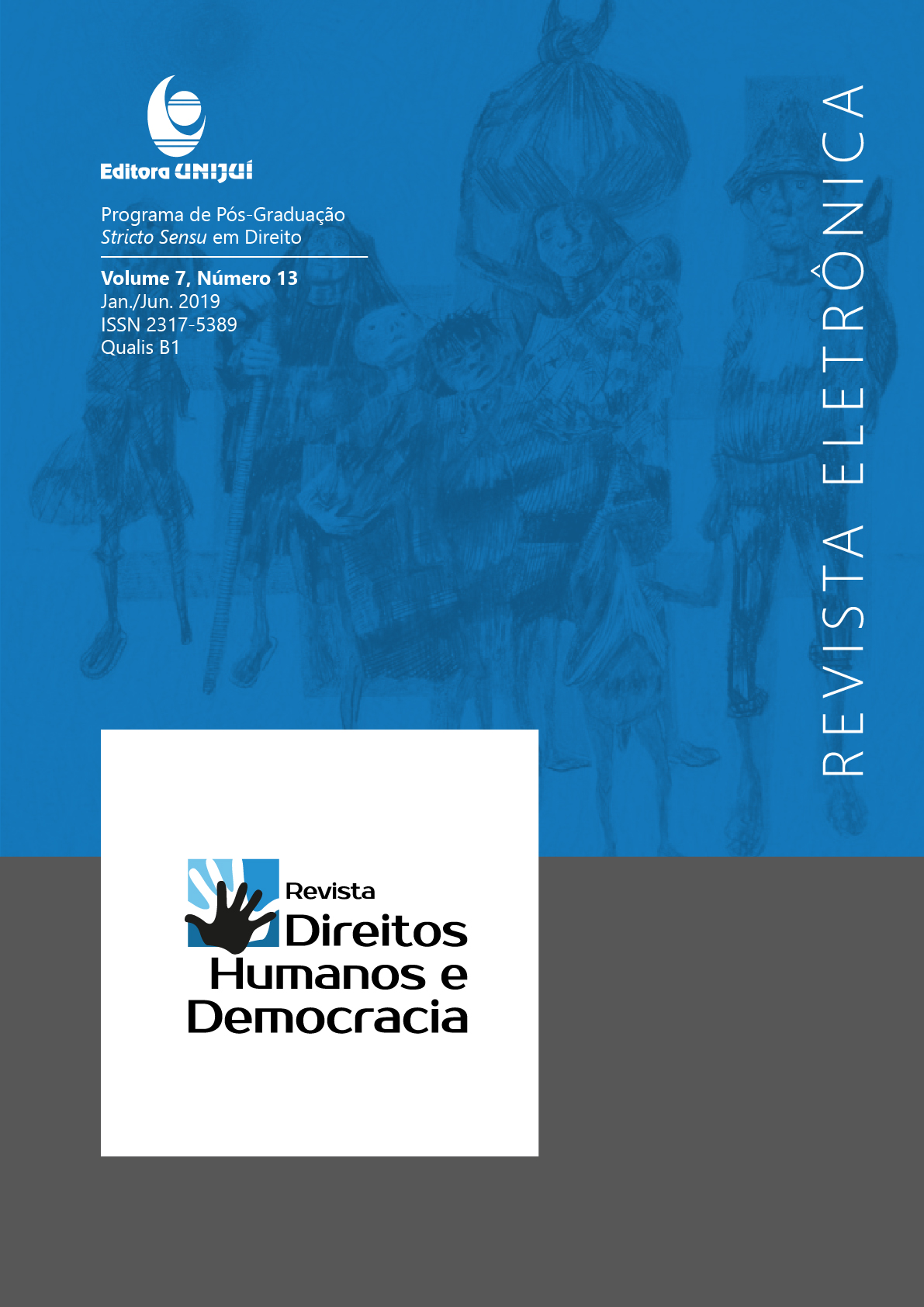O PROTAGONISMO POLÍTICO E SOCIAL DO MOVIMENTO NACIONAL DE CATADORES DE MATERIAIS RECICLÁVEIS NA EFETIVAÇÃO DE DIREITOS FUNDAMENTAIS
DOI:
https://doi.org/10.21527/2317-5389.2019.13.152-170Abstract
O presente artigo se propõe a analisar, por meio da abordagem dialética, o protagonismo exercido pelo Movimento Social de Catadores de Materiais Recicláveis na efetivação dos direitos fundamentais à saúde, à moradia e à educação. Desenvolvendo suas atividades nas ruas ou na modalidade associativa, estes trabalhadores enfrentam diversas dificuldades intrínsecas à sua atividade laborativa, as quais se agravam pelo fato de vivenciarem um contexto de repleta negação de direitos. Para tanto, pretende-se discutir a importância dos movimentos sociais para a conquista de direitos, em especial, a atuação daqueles classificados como “novos”, na construção teórica de Maria da Glória Gohn (2010), como é o caso do MNCR. Seguido pela análise das principais questões relativas aos direitos fundamentais à saúde, à moradia e à educação enquanto objetivos traçados pelo movimento para representar a categoria profissional. Por último, analise-se o contexto atual dos catadores de materiais recicláveis por meio dos avanços obtidos na efetivação dos direitos em tela.
Downloads
Published
How to Cite
Issue
Section
License
By publishing in the Revista Direitos Humanos e Democracia, authors agree to the following terms:
Articles are licensed under the Creative Commons Atribuição 4.0 Internacional (CC BY 4.0), which allows:
Share — copy and redistribute the material in any medium or format;
Adapt — remix, transform, and build upon the material for any purpose, including commercial use.
These permissions are irrevocable, provided the following terms are respected:
Attribution — authors must be properly credited, with a link to the license and indication of any modifications made;
No additional restrictions — no legal or technological measures may be applied that restrict the use permitted by the license.
Notices:
The license does not apply to elements in the public domain or covered by legal exceptions.
The license does not grant all rights required for specific uses (e.g., image rights, privacy, or moral rights).
The journal is not responsible for opinions expressed in the articles, which remain the sole responsibility of the authors. The Editor, with the support of the Editorial Committee, reserves the right to suggest or request modifications when necessary.
Only original scientific articles presenting research results of interest, not previously published or simultaneously submitted to another journal with the same purpose, will be accepted.
References to trademarks or specific products are intended solely for identification purposes and do not imply any promotional endorsement by the authors or the journal.
License Agreement: Authors retain copyright over their articles and grant the Revista Direitos Humanos e Democracia the right of first publication.













